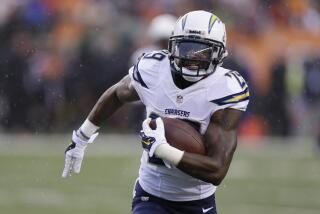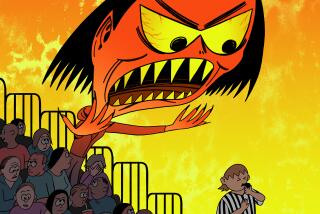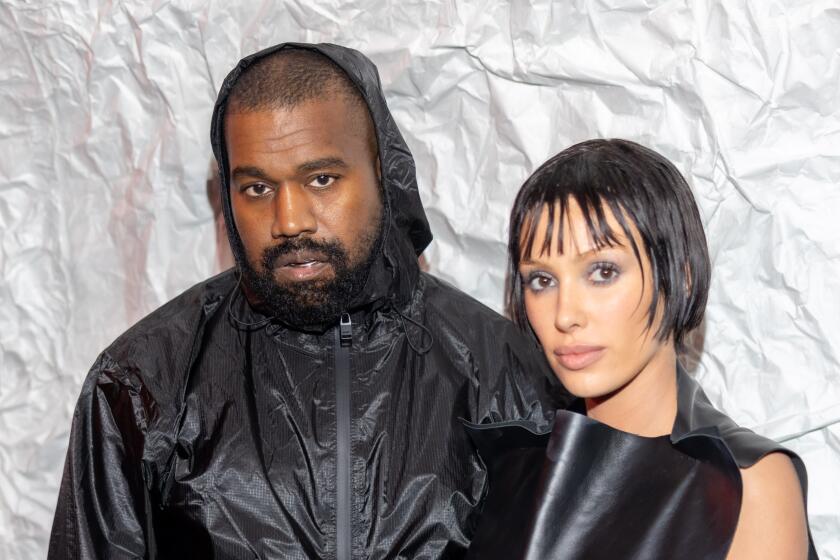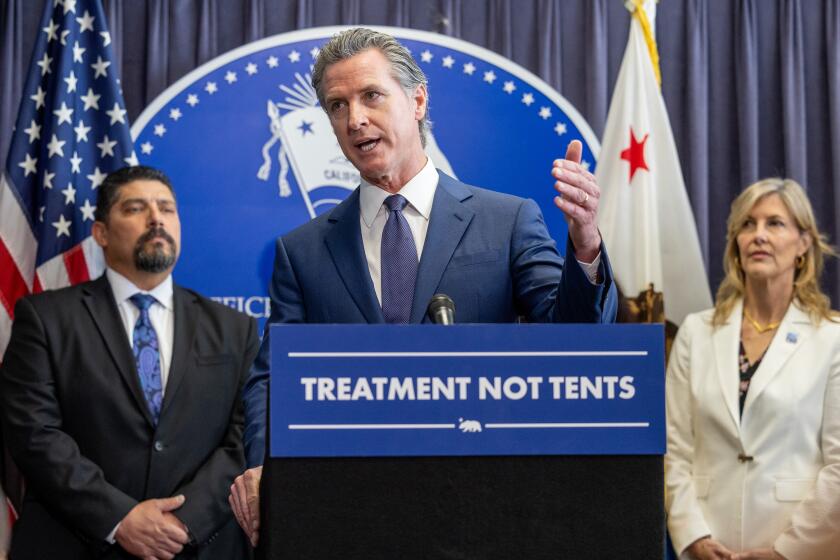Your parents whipped you and you turned out OK--like Adrian Peterson?
What, exactly, is the difference between knocking out a grown woman with a punch to the face and whipping a child until he bleeds?
Both are acts of brutality against relatively defenseless victims (even a grown woman is no match for a professional athlete in peak physical shape).
As we continue to digest the stories about two NFL running backs -- the Baltimore Ravens’ Ray Rice, who beat his fiancee in an elevator, and the Minnesota Vikings’ Adrian Peterson, who beat his pre-schooler with a switch--it’s been distressing to hear people roundly condemning Rice, yet trying to rationalize what Peterson did to his son.
After Peterson was charged with child abuse for using a switch to lacerate the thighs of his 4-year-old son, many people who should know better tried to trivialize the abuse.
“Whipping,” said former NBA star Charles Barkley, “we do that all the time. Every black parent in the South is going to be in jail under those circumstances.”
Others, like Mark Ingram of the New Orleans Saints and Darnell Dockett of the Arizona Cardinals, were quick to offer variations on the theme: “My parents did it to me, and look how great I turned out.”
If you can utter those words with a straight face, then I would submit that you did not turn out entirely OK. And chances are, your children aren’t going to be entirely OK either.
As Tulane University psychiatrist Stacy Drury told the New Republic’s Danny Vinik, “There’s actually solid evidence that if you were physically disciplined as a child, you’re much more likely to use physical discipline as a parent.”
Peterson seemed to be genuinely confused about his predicament. “I always believed that the way my parents disciplined me has a great deal to do with the success I enjoyed as a man,” he said.
I see it another way. I think the way his parents disciplined him has a great deal to do with why he is in legal peril and facing the greatest crisis of his career. They hit him. He hits his kids. And so on. Corporal punishment is often a multi-generational scourge.
[Updated 5:52 p.m. PDT Sept. 17: It also seems to be a growing problem for the NFL. On Wednesday, according to a Phoenix news report, Arizona Cardinals running back Jonathan Dwyer was charged with aggravated assault for hitting his wife and throwing a shoe at his 18-month-old son. Also Wednesday, Detroit Lions running back Reggie Bush had to walk back comments he made a day earlier on a New York sports radio show about how he would discipline his year-old daughter “harshly” if necessary. “Obviously I’m not going to be spanking a 1-year-old girl,” Bush told ESPN. Obviously.]
If you are among the vast majority of American parents who spank their children-- I have seen estimates that range between 60% and 80%--you should know you are teaching your kids the very opposite of what you intend.
Listen to the experts: “Extensive research demonstrates that although corporal punishment may have a high rate of immediate behavior modification, it is ineffective over time, and is associated with increased aggression and decreased moral internalization of appropriate behavior,” said the American Academy of Child and Adolescent Psychiatry in 2012.
Instead of talking about how great they turned out, people whose parents hit them should talk about -- or at least try to remember-- how it felt to be hurt by the people who were charged with loving and protecting them, about the sense of betrayal and the humiliation.
No doubt Peterson was sincere when he said, “I am not a perfect parent, but I am, without a doubt, not a child abuser. I am someone that disciplined his child and did not intend to cause him any injury.”
Whether he is a child abuser is a question that will be answered by the Texas courts. But how do you whip a child until he bleeds, then say you didn’t mean to hurt him? That is a circle that simply cannot be squared.
I only spank metaphorically on Twitter: @robinabcarian
More to Read
Start your day right
Sign up for Essential California for news, features and recommendations from the L.A. Times and beyond in your inbox six days a week.
You may occasionally receive promotional content from the Los Angeles Times.







